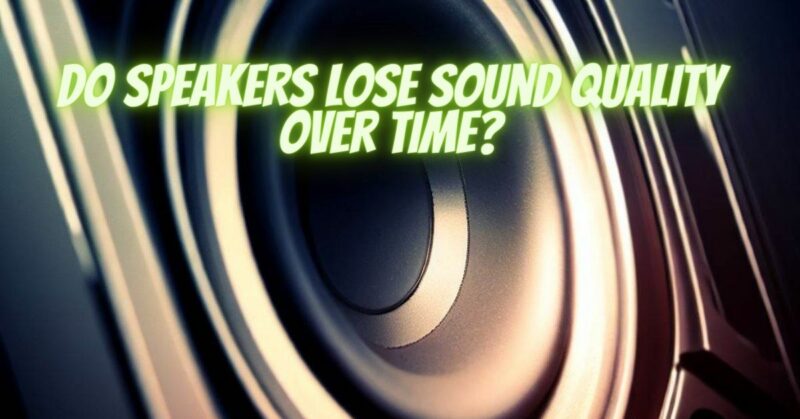Speakers are the heart of any audio system, responsible for reproducing sound with accuracy and clarity. As speakers age, there is a common perception that they may lose sound quality. In this article, we will delve into the factors that can influence the sound quality of speakers over time and whether age truly has a significant impact on their performance.
Understanding the Components
Before examining the effects of aging on speakers, it’s crucial to understand the key components that contribute to their sound quality:
- Cone and Surround: The cone is the diaphragm responsible for moving air to produce sound, while the surround connects the cone to the speaker frame, allowing it to move. The flexibility and integrity of these components play a vital role in sound reproduction.
- Voice Coil: The voice coil is a coil of wire attached to the diaphragm, interacting with the magnetic field generated by the speaker’s magnet. This interaction produces vibrations that create sound.
- Magnet and Motor Assembly: The magnet and motor assembly generate the magnetic field necessary for the voice coil to function.
- Suspension (Spider): The suspension, often referred to as the spider, supports the voice coil, allowing it to move back and forth.
Factors Influencing Sound Quality Over Time
Several factors can impact the sound quality of speakers as they age:
- Material Deterioration: Over time, materials like rubber surrounds, foam surrounds, and other components may deteriorate. This can result in a loss of flexibility, leading to changes in the speaker’s ability to accurately reproduce sound. Foam surrounds, in particular, are susceptible to degradation.
- Voice Coil Damage: Wear and tear on the voice coil can lead to alignment issues or even coil separation. This can result in distortion or a reduction in audio quality.
- Magnet Weakness: The magnets in speakers can weaken over time, affecting the speaker’s ability to efficiently move the diaphragm and produce sound.
- Environmental Conditions: The environmental conditions in which speakers are placed can have a significant impact on their longevity and performance. Exposure to extreme temperatures, high humidity, or direct sunlight can accelerate wear and tear.
- Power and Amplification: Overpowering speakers with amplifiers that deliver excessive wattage can cause damage to components, potentially shortening their lifespan. Properly matching the amplifier to the speaker’s power-handling capacity is essential.
- Maintenance: Regular cleaning and maintenance can help extend a speaker’s lifespan. Dusting, cleaning components, and addressing damage when necessary can contribute to maintaining sound quality.
The Reality of Speaker Aging
While speakers can undergo changes in sound quality over time, it is essential to recognize that these effects are not solely determined by age. Other factors, such as material quality, environmental conditions, and usage patterns, play a significant role. Well-maintained, high-quality speakers can continue to provide excellent sound reproduction for many years.
Maximizing Speaker Longevity and Performance
To ensure your speakers maintain their sound quality over time:
- Proper Match: Match the amplifier’s power output to the speaker’s power-handling capacity to prevent overpowering.
- Moderate Usage: Avoid continuous high-volume use, which can lead to overheating and component stress.
- Environmental Control: Place speakers in a clean, dry environment and protect them from extreme temperatures and humidity.
- Regular Maintenance: Clean speakers periodically, inspect for damage, and address issues promptly.
- Refurbishment: When components like surrounds or cones deteriorate, consider refoaming or reconing to restore sound quality.
While speakers can experience changes in sound quality over time due to various factors, aging alone is not the sole determinant of their performance. Regular maintenance, proper care, and appropriate usage can significantly impact the lifespan and sound quality of speakers. High-quality speakers that are well-maintained can continue to deliver excellent sound reproduction for many years, debunking the notion that speakers inevitably lose sound quality with age.


